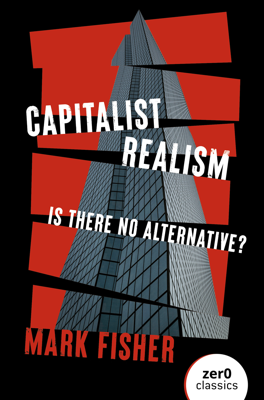‘…if You Can Watch the Overlap of One Reality With Another’: Capitalist Realism as Dreamwork and Memory Disorder
Adaptation to Fluid Realities in Capitalist Realism
Capitalist realism has evolved to accommodate an ever-modifiable reality, where nothing is definitive, and memories and histories can be edited like a digital text. Jameson highlights a "fungible present," indicating that both physical and psychological realms can be remolded to suit the transient needs of capitalism.
Memory and Management under Capitalism
In capitalist realism, memory is as unstable as the reality to which one must adapt. For instance, a middle manager personifies this by seamlessly changing his narrative about corporate futures without acknowledging the contradictions. Such disconnection from reality's inconsistencies is seen as a precondition for functioning effectively in this system.
Capitalism's Dreamwork and Memory Gaps
The narrative draws from Ursula Le Guin’s The Lathe of Heaven, where a character’s dreams alter reality, paralleling how capitalist realism reshapes historical and individual memory. This fuzzy approach to reality and memory serves the interests of capitalism by smoothing over inconsistencies and making continuous recalibration acceptable and normative.
Social Amnesia and Identity Politics
Capitalist realism cultivates a collective amnesia, allowing for drastic transformations in identity and public consciousness, as seen in the case of British politician Gordon Brown, who reinvented his background to align with capitalist rhetoric. Brown's shift from a socialist to a pro-business persona displays how personal history can be rewritten to match the capitalist narrative.
Implications of Manufactured Realities
In capitalist realism, the capacity to remember and forget selectively enables individuals and societies to navigate the contradictions inherent in capitalism. This manipulation of memory and reality is portrayed as a necessity for survival in an unstable economic environment. The cultural preoccupation with memory disorders in films such as Memento and The Bourne Identity reflects anxiety about identity and reality in a capitalist society, where history and self are perpetually rewritten.
Dreamwork as a Mode of Power
Dreamwork, or the psychological manipulation of memory to create a seamless narrative experience, is critical in capitalist realism. It masks real contradictions and injustices under the guise of normalcy and inevitability. Wendy Brown's critique illustrates how neoconservatism and neoliberalism, despite their contradictions, cooperatively erode democratic processes by reconfiguring the political landscape to prioritize market solutions and individual consumerism over collective action.
The Interplay of Neoconservatism and Neoliberalism
The uneasy but effective alliance between neoconservatism and neoliberalism is primarily directed against the welfare state and its beneficiaries. Despite outward anti-state rhetoric, both ideologies strategically support state interventions that benefit capitalist interests, especially in policing, military, and bailouts, while opposing social welfare programs that promote shared responsibility and collective well-being.
In summary, this chapter details how capitalist realism embraces a malleable understanding of reality and memory, facilitating a culture where historical and individual identity are continually reconstructed to meet the needs of capitalism. This perpetual instability serves both to entrench capitalist dominance and to camouflage its contradictions, making opposition to its logic both difficult to articulate and easy to dismiss as unrealistic.
